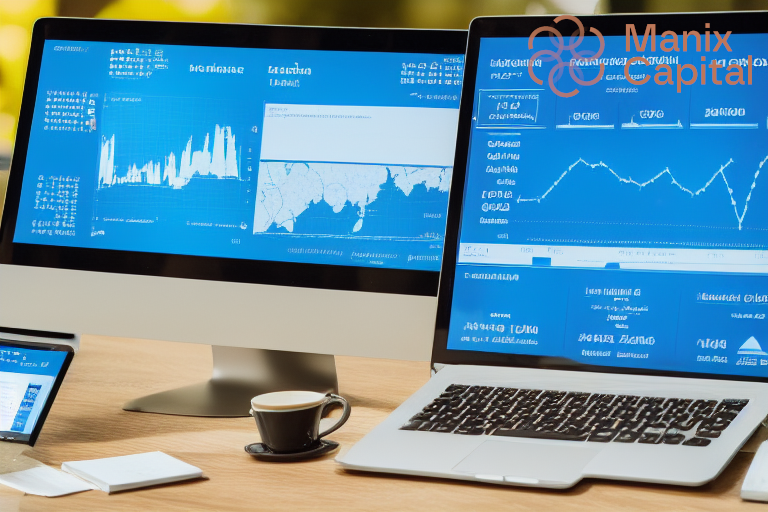In today’s digital age, startups face a highly competitive and constantly evolving business environment. To stand out and achieve success, it is crucial to make strategic decisions backed by reliable data and predictive analytics. In this article, we will explore how the use of big data and predictive analytics technologies can drive strategic decision making in startups, providing valuable information for their growth and profitability.
Benefits of big data in strategic decision making
Big data refers to the massive volume of data that companies generate and collect on a daily basis. By leveraging these vast amounts of information, startups can gain deeper insight into their market, customers and competitors. Some key benefits of big data in strategic decision making include:
1. Market and trend analysis: By analyzing external and internal data, startups can identify market patterns and trends, enabling them to make informed decisions about their market strategy, customer segmentation and product positioning.
2. Customer insight: Big data enables startups to gain a deep understanding of their customers, from their buying behavior to their preferences and needs. This allows them to personalize product and service offerings, enhance the customer experience and optimize retention strategies.
3. Internal process optimization: By analyzing internal data, startups can identify inefficiencies and areas for improvement in their operational processes. This leads to greater efficiency, cost reduction and improvements in product or service quality.
Predictive analytics as a strategic tool for startups
Predictive analytics uses advanced modeling and machine learning techniques to predict future outcomes based on historical and current data. In the context of startups, predictive analytics becomes invaluable when making strategic decisions. Some highlights of predictive analytics in startups are:
1. Demand forecasting: Startups can use predictive analytics to forecast future demand for their products or services. This allows them to plan ahead for production, resource acquisition and inventory management.
2. Price optimization: Predictive analytics helps startups set optimal prices to maximize revenue. By understanding how customers respond to price changes and different economic factors, startups can adjust their pricing strategies more intelligently and profitably.
3. Fraud and risk detection: Startups can use predictive analytics to identify patterns and anomalies that may indicate fraudulent activities or potential risks. This allows them to take preventive measures and minimize possible losses.
Implementation of big data and predictive analytics technologies in startups
Now that we have explored the benefits of big data and predictive analytics, it is essential to understand how to implement these technologies in a startup. Some key steps for successful implementation include:
1. Data collection and storage: Startups should make sure to collect relevant and reliable data from a variety of sources, such as social networks, online transactions and surveys. In addition, they need to establish an adequate data storage and management infrastructure to ensure accessibility and security of information.
2. Data analysis and processing: Startups must use data analysis tools and techniques to process and extract valuable information from data sets. This may include the use of machine learning algorithms and data mining techniques to discover patterns and trends.
3. Integration with existing systems: It is essential for startups to integrate big data and predictive analytics technologies into their existing systems and processes. This involves collaboration between different teams and the implementation of compatible technological solutions.
4. Team training: To take full advantage of big data and predictive analytics technologies, startups must train their team in the use of these tools and in the interpretation of the results. This ensures that informed decisions are made and the full potential of the data is realized.
Success stories of startups that have used big data and predictive analytics technologies.
To illustrate the effectiveness of big data and predictive analytics technologies in startups’ strategic decision making, it is useful to review some success stories. Here are some examples:
1. Airbnb: Using predictive analytics, Airbnb can predict the demand for accommodations in different locations and adjust prices accordingly. This allows them to maximize revenue and offer guests attractive options.
2. Netflix: Netflix uses predictive analytics to recommend personalized content to its users. By understanding users’ viewing patterns and preferences, they can provide relevant recommendations, increasing customer satisfaction and retention.
3. Amazon: Amazon uses predictive analytics to predict the preferences and needs of its customers, which allows them to offer highly personalized product recommendations and make user-specific promotional offers.
Conclusion
In summary, the use of big data and predictive analytics technologies can provide startups with a significant competitive advantage when making strategic decisions. From market analysis and customer insight to price optimization and risk detection, these tools can generate valuable information that drives growth and profitability. By implementing these technologies properly and empowering their team, startups can fully leverage the potential of data to drive business success.
Remember, the use of big data and predictive analytics technologies in startups’ strategic decision making is not only an option, but a necessity in today’s highly competitive and ever-changing business world. Don’t underestimate the power of data and how it can transform your startup into a thriving and successful business. Go ahead and start harnessing the power of big data and predictive analytics in your business strategy!



